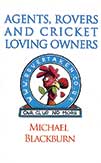 by Michael Blackburn
by Michael Blackburn
Grosvenor House, £7.99
Reviewed by Tom Greene
From WSC 310 December 2012
I was 100 pages into reading Agents, Rovers and Cricket Loving Owners when Steve Kean resigned from Blackburn Rovers. The author, Michael Blackburn, pours so much of his heart and soul into describing the pain both Kean and Venky’s have caused the club’s support that my first thought on hearing the news was for him. His book is a history of Venky’s takeover from the perspective of an exasperated fan living through it.
The story is certainly there to be told – Rovers have gone from one of the best run clubs in the League, operating successfully on very little external funding in one of the poorest parts of the UK, to an utter shambles. The catalogue of mismanagement, PR embarrassments and total lack of direction described in the book continues to this day. At the time of writing, despite Kean’s resignation almost a month ago, there is still no new manager in place. When Venky’s took over Kean was Sam Allardyce’s first-team coach. Currently in charge is Kean’s assistant, Eric Black: anyone is in with a chance of the manager’s job at Ewood Park.
The book is a chronological story from the day the Venky’s took over in November 2010 to eventual relegation last May. The structure is both a strength and weakness. On the positive side, no detail of the fans’ experience has gone undocumented and almost every game of Kean’s reign is described in painstaking detail. However, his poor team selection, delusional post-match analysis and never-ending optimism about his own and the team’s position is not enough to engage the reader throughout.
My favourite sections of the book are where we get pure unadulterated Kean. Although the author is scornful of Kean’s playing and managerial experience, this was not what made him a disastrous manager. His Comical Ali-style post-match debriefs are catalogued with some verve, although I was disappointed that a personal favourite – where Kean blamed a David Dunn shot hitting the post on a lack of dew on the grass – was not included in the author’s top ten. However, because we do not hear from Venky’s or their ex-manager directly (no doubt not for want of trying by the author) we are left with the same longing for the true story as Rovers fans will have felt living through it.
This book will not shed any new light on the Venky’s debacle for anybody who has followed the era closely. However, you could not get a more comprehensive account of what it has felt like to be a Rovers fan over the last two years. For those fans of Premier League teams not content with mid- to lower-table obscurity, read this book and it will show you that things could be worse. A lot worse.
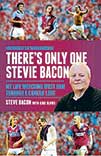 My life watching
West Ham through
a camera lens
My life watching
West Ham through
a camera lens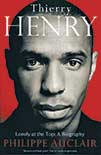 Lonely at the top:
A biography
Lonely at the top:
A biography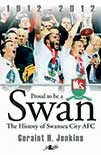 The history of Swansea City AFC
The history of Swansea City AFC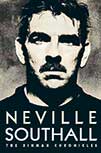 by Neville Southall
by Neville Southall